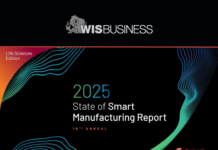The Water Council has selected 10 startup companies from around the world for its latest BREW 2.0 Post-Accelerator program, helping advance technologies for water filtration and treatment, energy generation and more.
The Milwaukee-based organization yesterday rolled out the list of its latest cohort, representing entrepreneurs from six countries. These business leaders — whose companies are either market-ready or in the early stages of going to market — will go through several weeks of virtual training before spending a week in Milwaukee.
To cap off the experience, participants will take part in the BREW Showcase event on June 19, which will feature a combination of short pitch presentations and company exhibits.
Karen Frost, vice president of economic development and innovation for the Water Council, says the BREW 2.0 program has helped many water tech startups through its global program and network who are solving challenges around water.
“We’re thrilled to help these start-up companies grow, connect and develop toward the next step in their journey,” Frost said in a statement.
Participating companies include:
- Aquapower, a Brazilian business that aims to install small turbines in water pipes of industrial plants and cities, using the “excess pressure” from these systems to produce electricity.
- BIOBOX, a Spanish company developing a method for breaking down nitrates using biological methods. The startup boasts a method that produces no waste with “the lowest operational cost” on the market.
- Conatus Ambiental, another Brazilian company. This startup is using AI and connected systems to improve water treatment methods, aiming to reduce chemical consumption and improve water quality using automation.
- Desolenator, a startup from the Netherlands with a method for using solar power to remove salt from water. It has applications across food and beverage, technology and energy sectors, according to the Water Council.
- Green Steel Environmental, a Colorado business that “upcycles” industrial byproducts to extract nutrients from natural gas and wastewater for use as fertilizer.
- Legacy Watercare Innovations, a Canadian startup with a wastewater treatment system that doesn’t use filters or membranes.
- An Alabama company called sum., which has a system for making personalized drinks that’s meant for use in fitness studios.
- WASE, a U.K. business that aims to “maximize” biogas generation for manufacturers and farmers using wastewater and other materials.
- Watergate, another U.K. company with a “smart valve” that uses AI to detect and stop leaks.
- Weaver Labs, an Oklahoma-based startup with a patented technology for removing harmful PFAS chemical contaminants.






